In today’s job market, simply submitting a resume and cover letter may not be enough to stand out from the crowd. Whether you’re a seasoned professional or just starting out in your career, developing a compelling personal brand can make all the difference in landing your dream job. It’s essential for job seekers to take a proactive approach to marketing themselves.
What is Personal Branding?
Personal branding is the process of intentionally creating and managing your public image to differentiate yourself from others in your field. It’s about showcasing your unique skills, experiences, and personality in a way that resonates with potential employers and sets you apart as a top candidate. Your personal brand is what people say about you when you’re not in the room – it’s how you’re perceived by others based on your actions, reputation, and online presence.
Why Personal Branding Matters in Job Search
In today’s digital age, recruiters and hiring managers often turn to the internet to research candidates before making hiring decisions. Your personal brand – including your online presence, social media profiles, and professional reputation – plays a significant role in shaping their perception of you as a candidate. A strong personal brand can help you:
- Differentiate Yourself: In a sea of resumes, a well-defined personal brand can help you stand out and be remembered by recruiters.
- Build Credibility: A consistent and professional online presence can enhance your credibility and make you appear more trustworthy to potential employers.
- Attract Opportunities: When you effectively communicate your unique value proposition, you’re more likely to attract job opportunities that align with your skills and interests.
- Create Networking Opportunities: A strong personal brand can attract like-minded professionals and industry peers, leading to valuable networking connections and career opportunities.
Define Your Unique Value Proposition
Your personal brand is a reflection of who you are, what you stand for, and the value you bring to the table. Take some time to reflect on your strengths, skills, and unique qualities that make you stand out as a marketer. What sets you apart from others in the industry? Identify your unique value proposition (UVP) and use it as the foundation of your personal brand.
Develop a Consistent Online Presence
In today’s digital age, your online presence plays a significant role in shaping your personal brand. Ensure that your LinkedIn profile, personal website, and social media accounts are up-to-date and reflect your professional image. Use a professional headshot, craft a compelling summary that highlights your expertise and achievements, and regularly share relevant content related to marketing to showcase your knowledge and passion for the industry.
Tell Your Story
Storytelling is a powerful tool for building connections and engaging your audience. Use your personal brand to tell your story authentically and compellingly. Share your journey, experiences, and key milestones that have shaped your career in marketing. Highlight your successes, challenges you’ve overcome, and lessons you’ve learned along the way. By sharing your story, you not only humanize your brand but also establish a deeper connection with potential employers.
Network Strategically
Networking is essential for building relationships, expanding your professional circle, and uncovering new opportunities. Be proactive about networking both online and offline. Attend industry events, join marketing-related groups and forums, and connect with professionals in your field. Engage in meaningful conversations, offer value, and be genuine in your interactions. Remember, networking is not just about what you can get from others but also about how you can contribute and add value to the community.
Showcase Your Expertise
One of the most effective ways to establish your personal brand is by showcasing your expertise in marketing. Create and share content that demonstrates your knowledge, insights, and thought leadership in your area of expertise. Start a blog, contribute articles to industry publications, or participate in webinars and podcasts. Position yourself as a go-to resource for all things marketing and establish yourself as an authority in your niche.
Seek Feedback and Adapt
Building a personal brand is an ongoing process that requires continuous learning and adaptation. Seek feedback from peers, mentors, and industry professionals to gain valuable insights into how others perceive your personal brand. Take constructive criticism in stride and use it as an opportunity for growth and improvement. Stay adaptable and be willing to evolve your personal brand as your career progresses.
In conclusion, personal branding is a powerful tool for marketers looking to stand out in a crowded job market and land their dream job. By defining your unique value proposition, developing a consistent online presence, telling your story, networking strategically, showcasing your expertise, and seeking feedback, you can build a strong personal brand that resonates with potential employers and sets you on the path to career success in marketing.


